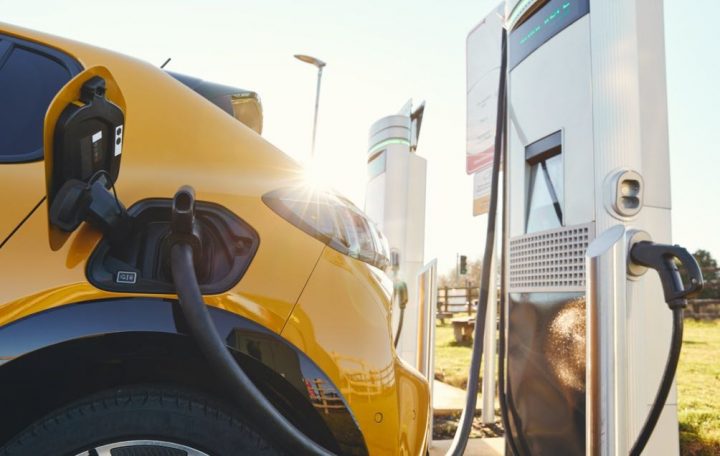There are indications the bubble is about to burst for electric car registrations and sales.
Widespread pre-registration of electric cars is likely in the fourth quarter of 2025, a member meeting of the Vehicle Remarketing Association was told.
This is because dealers and large fleets have been told car makers will be offering hefty discounts to them to encourage sales before the end of the year when the manufacturers will have to pay massive penalties on each unsold BEV.
The result could see forecourt prices tumble and for ‘nearly new’ delivery only mileage models appearing in large numbers over coming weeks.
Rupert Pontin, head of insight and communications at Brego, pointed out the government’s Zero Emissions Vehicle (ZEV) Mandate for this year was 28% of new car sales – but sales were currently only running at 22%.
“It seems inevitable that some manufacturers with some models will be pushing out stock in an attempt to minimise their ZEV Mandate exposure. Of course, this would put pressure on late plate values but also introduce offers into the market that offer exceptional value for buyers.”
Mike Fazal, CEO of Leasing.com, said the government’s new electric car grants, introduced in July, were already having a noticeable effect.
“There’s been some criticism of the scheme but it has driven both engagement and sales. Overall, electric car prices have fallen on our platform and the overall percentage of electric car queries we are seeing for Personal Contract Hire has risen from 24% in June to 44% in November.
“However, it’s clear that it is very much an offer-driven market. Electric cars that look like exceptional value are delivering the sales. For example, the Ford Puma Gen-E – one of very few models to qualify for the full £3,750 grant – is currently very well priced and among the best sellers on our platform.”
Nick Press, finance and leasing development director at Auto Trader, agreed that demand in this sector was often stimulated by attractive pricing, and pointed out consumers were showing much less brand loyalty when it came to electric cars.
“When it comes to used electric cars, only two in 10 buyers stay with the same brand they already drive compared to four in 10 for petrol and diesel models.”
He also took part in a discussion at the meeting – held at Toyota’s Burnaston manufacturing facility – about the best ways for the market to handle the current stock shortage of 3-5-year-old cars.
He said: “The current stock shortage is a result of pandemic production issues working their way through the age cohorts of the market. There are clear shortages compared to demand and 3-5-year-olds are the fastest selling on our platform.”
Melissa Seckington, head of corporate sales at Wilsons Auctions, added, “It’s an issue that means dealers have had to change their stocking profile. If they can’t get 3-5-year-old cars, they have to go younger or older. Most tend to go with the latter and work to bring condition up to a level that meets buyer expectations.”
Martin Cleaver, group trade disposal manager at Sytner, said: “These shortages mean there has been flexibility from some manufacturers when it comes to approved used schemes and 6-7-year-old-cars are now not uncommon at franchise dealers.
“Also, it’s not just a question of 3-5-year-old stock being in short supply. We’re seeing fewer natural part exchanges coming back into dealerships, as more people choose to sell through online car-buying/selling platforms. With greater access to information and options, customers are making different choices about how they dispose of their cars.”
The final discussion of the meeting concerned the recent Supreme Court decision on motor finance commission. Anthea Coulter, account director at Equiniti, said there remained a wide range of unknowns about how the redress scheme would work.
“These include whether the scheme will be opt-in or opt out, the time period covered, potential malicious or accidental duplication of claims, the right to offset any debt on the agreement, limits on closing missing data gaps, clear guidance on what constitutes an unfair relationship, and how the FCA calculates redress. There’s much where we remain in the dark.”
VRA legal counsel, Jonathan Butler, partner at Geldard’s, added, “A good redress scheme depends on active engagement, so we’d very much urge businesses who will be affected to contribute fully and constructively to the FCA consultation when it is launched in October.
“The industry, on a wider basis, should consider what a good redress scheme looks like? To be credible, it needs to be clear, swift and certain but also avoid arbitrary awards which could be subject to further legal challenge. We do not want to see a fudge which under-compensates genuine claimants but nor do we want to see claimants who can’t prove they’ve suffered any harm at all handed windfalls either.”
Philip Nothard, chair of the VRA, said the meeting had been one of the VRA’s most informative this year, with a high level of engagement.
“There are a wide range of difficult issues facing the remarketing sector at the moment and this meeting did an excellent job of briefing our members thoroughly on some of the most important.”
